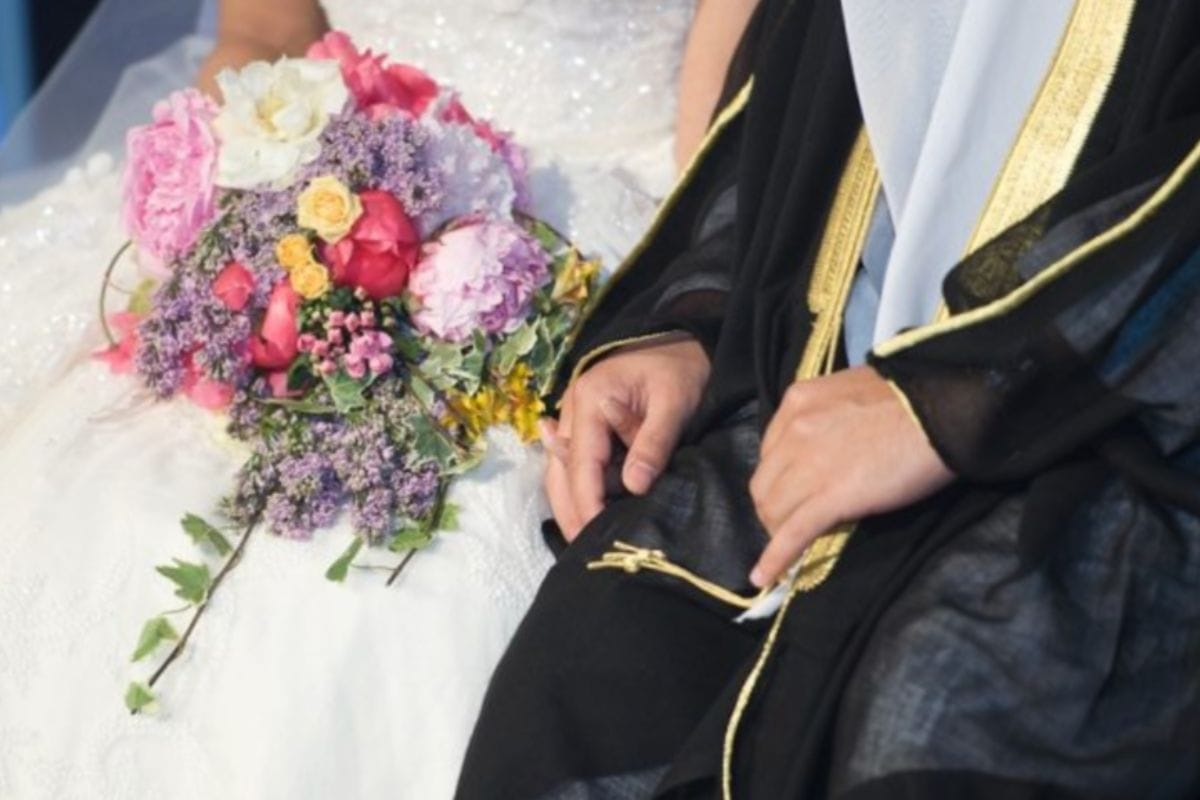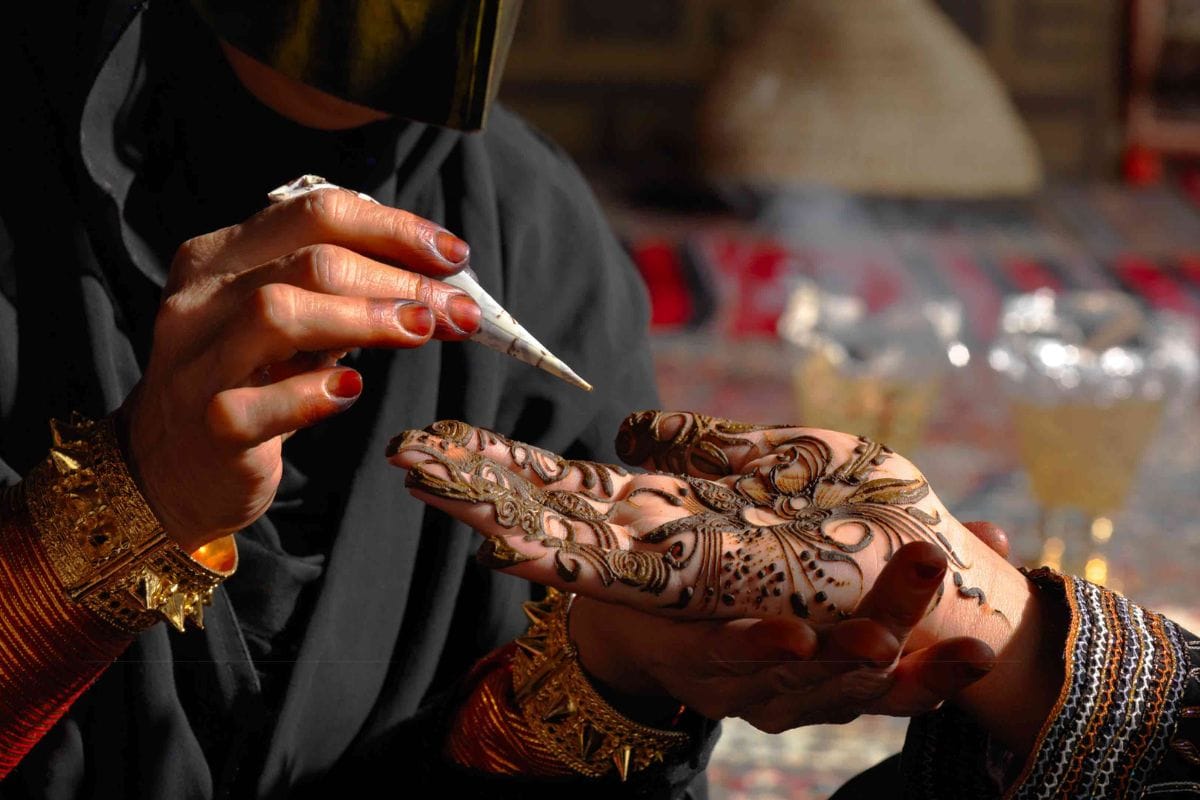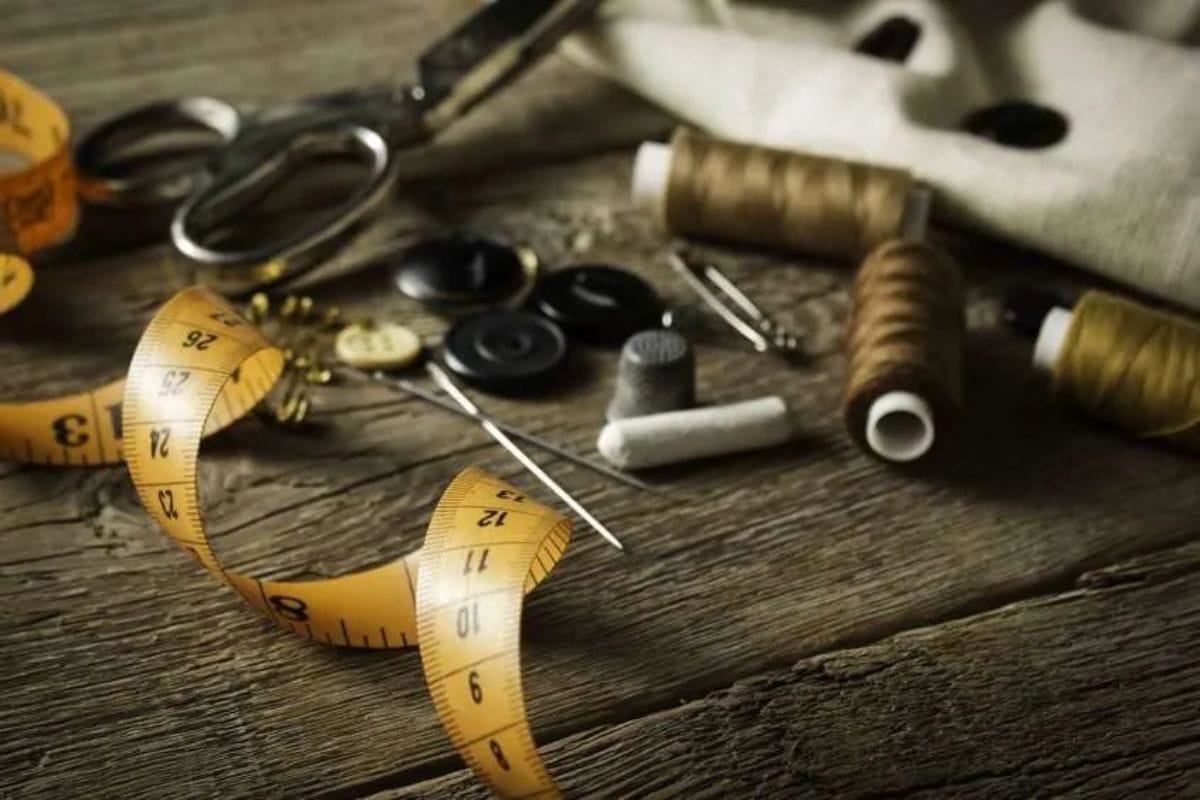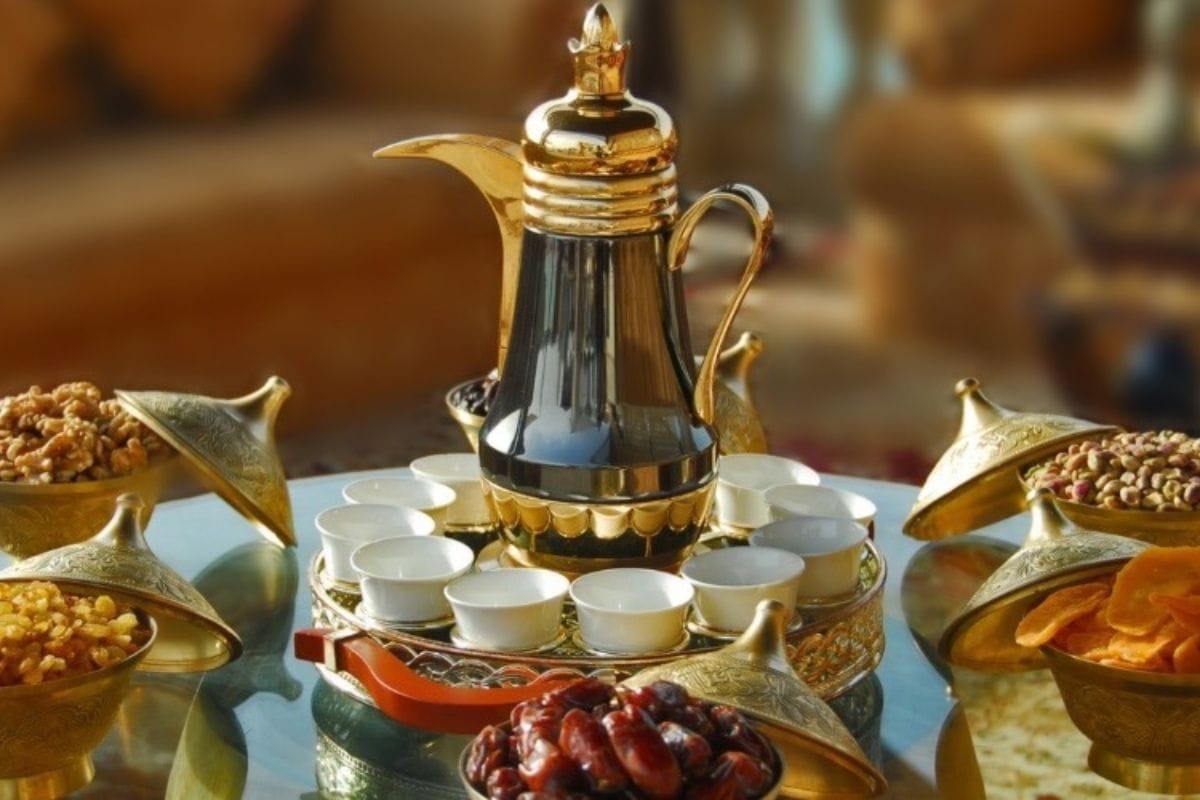A wedding day is one of the most special and memorable days of a person's life; a day where they declare their love and commit to the love of their life for better or worse. This ceremony marks a brand new chapter for a couple where they come together and become one, surrounded by their loved ones and creating a cherished moment that will last a lifetime.
Weddings are a big part of various cultures around the world, each with its own customs and traditions that make the event unique and unforgettable. Unlike the shows and movies where we see the grooms get down on one knee and say the I Do's, the Arab world does things differently.
In the region, rather than a wedding being just between man and woman, the families of the groom and bride play an essential role in everything, from the engagement to the actual ceremony itself.
Not only that but Arabs, more specifically Emiratis, go above and beyond for their weddings, often spending hundreds of thousands of dirhams on the ceremonies. And unlike Western weddings, these Emirati wedding celebrations can last up to a week!
Along with the opulence and luxury, Emirati weddings follow certain traditions that have been around for decades. Here are some of the Emirati wedding traditions that have prevailed over the years!
The Proposal
The proposal process for an Emirati is quite a unique one compared to the rest of the world. Here's what happens.
Al Khutba
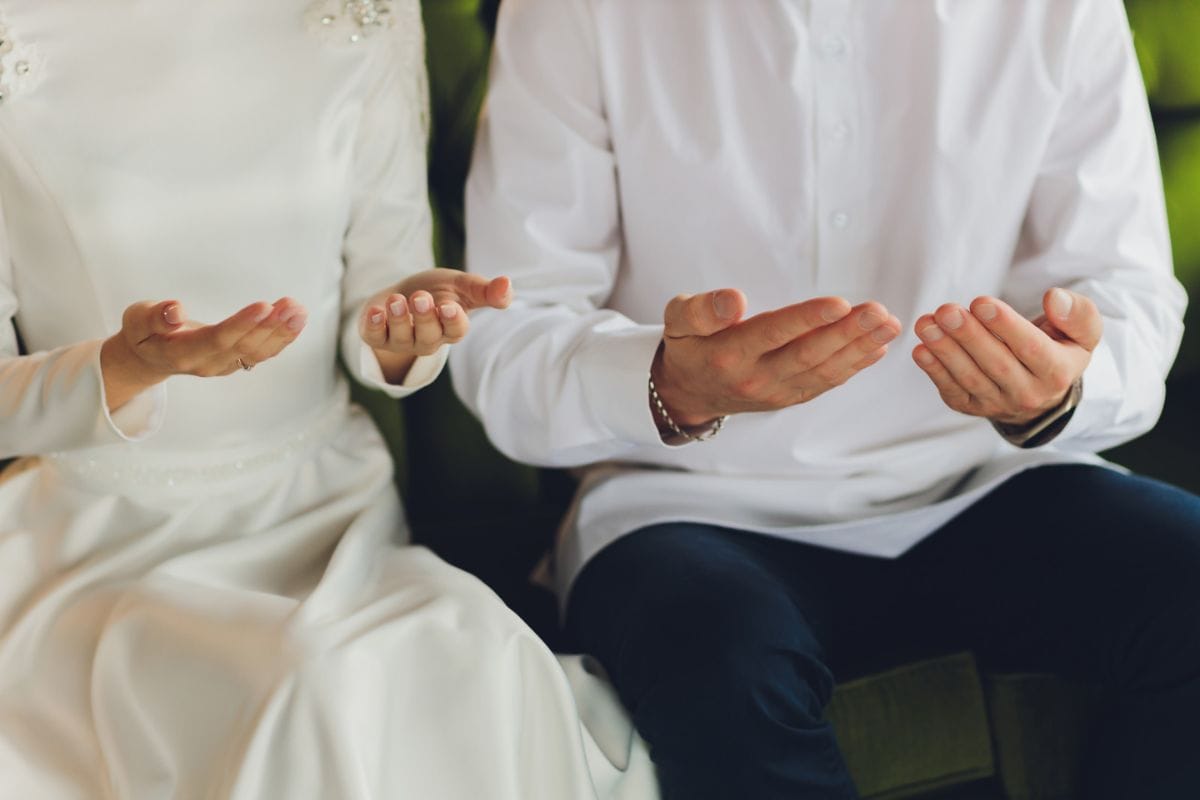
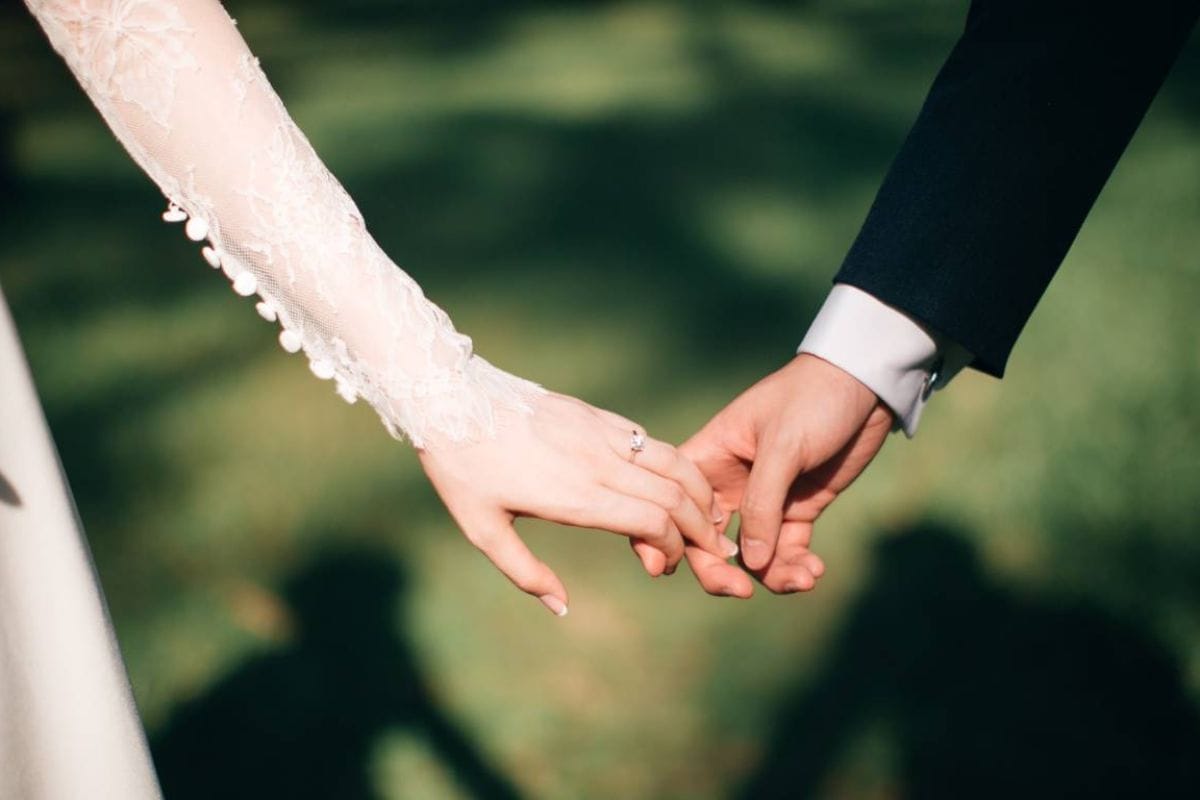
The Khutba is the beginning of the process: the engagement. Instead of getting down on one knee, Arab engagements begin with the groom approaching the bride's family and asking for her hand in marriage. After accepting, both the groom's and the bride's family sit down together to negotiate the terms of the marriage as well as various other arrangements and expenses.
The period between the Khutba and the actual wedding is also considered a time when the future bride and groom get to know each other, always meeting at the families' houses. This engagement period can vary between couples, from just a few weeks to even years.
Mahr
After becoming officially engaged, there are still some things that need to be done. According to Islamic marriage rules, the Mahr is one of the most essential parts of a wedding. The Mahr, also known as a dowry in English, is a mandatory fee that needs to be paid by the groom to the bride and is considered to be a gift to symbolize his love and commitment.
In the UAE, the maximum Mahr that can be given is 50,000 AED, but the Mahr doesn't always have to be money. Some brides may request jewelry, property, or even flight tickets. Some might even request a Mahr of as little as 1 AED!
The Preparations
Now it's time to prepare for the celebrations!
Bride Pampering
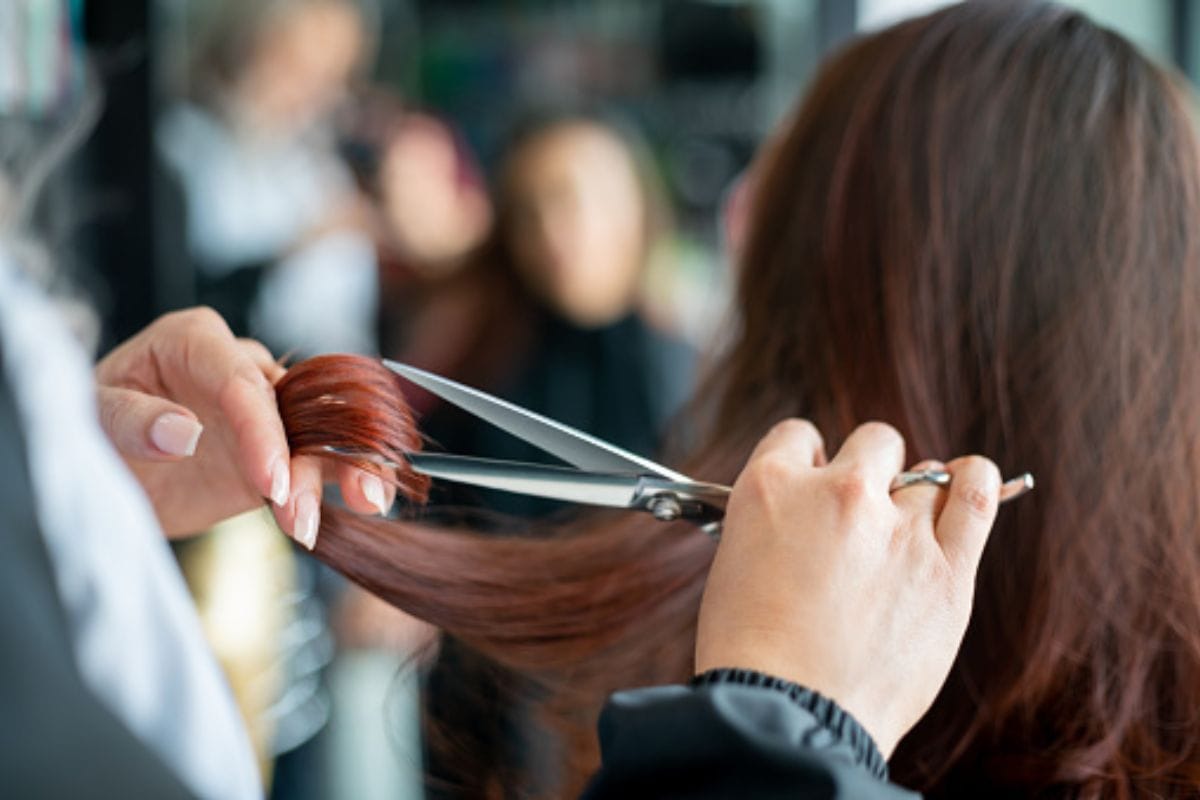
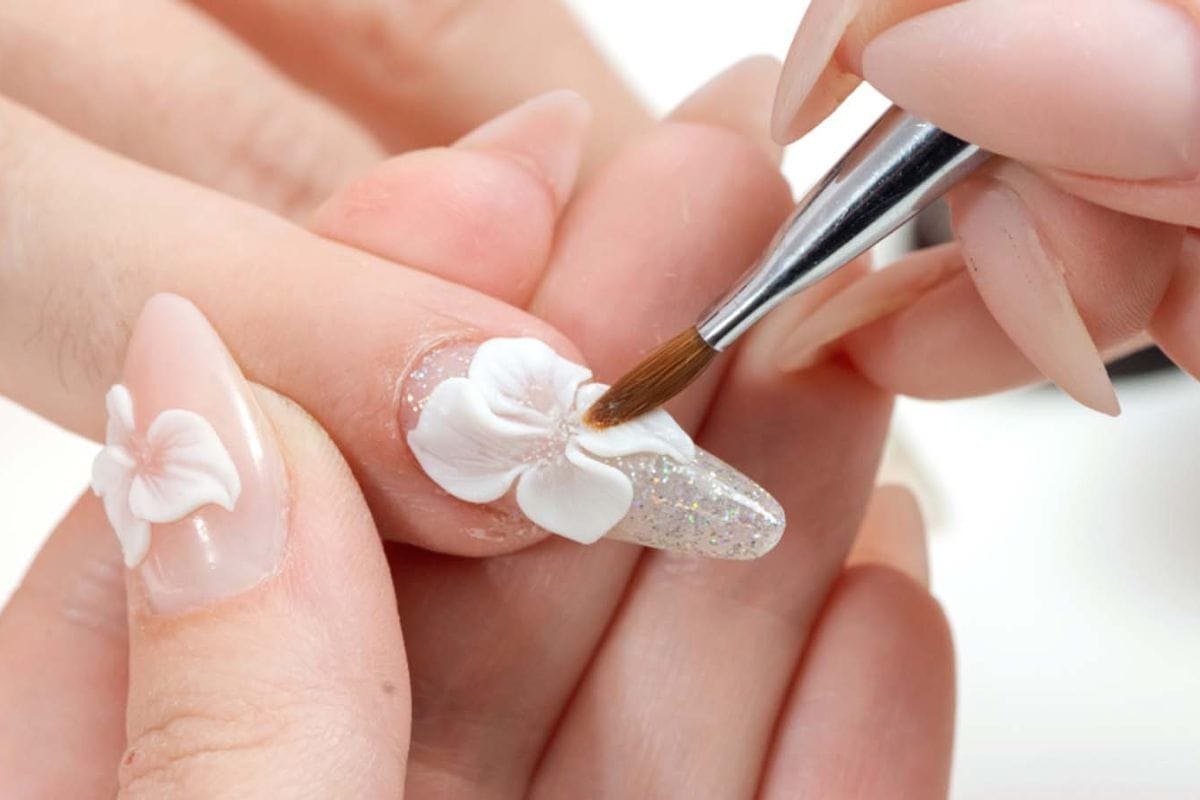
In Emirati culture, after setting a day for the wedding, there's a month-long period just dedicated to pampering the bride. The bride gets to rest as the rest of her family and loved ones spoil her with food, gifts, and beauty treatments to make sure she looks her absolute best on her special day.
This tradition not only allows the bride to relax and rejuvenate before the wedding, but it also serves as a time for bonding with her family and friends before the big celebration. It is a cherished time for everyone involved to show their love and support for the bride as she prepares to start this new chapter in her life.
Henna Night
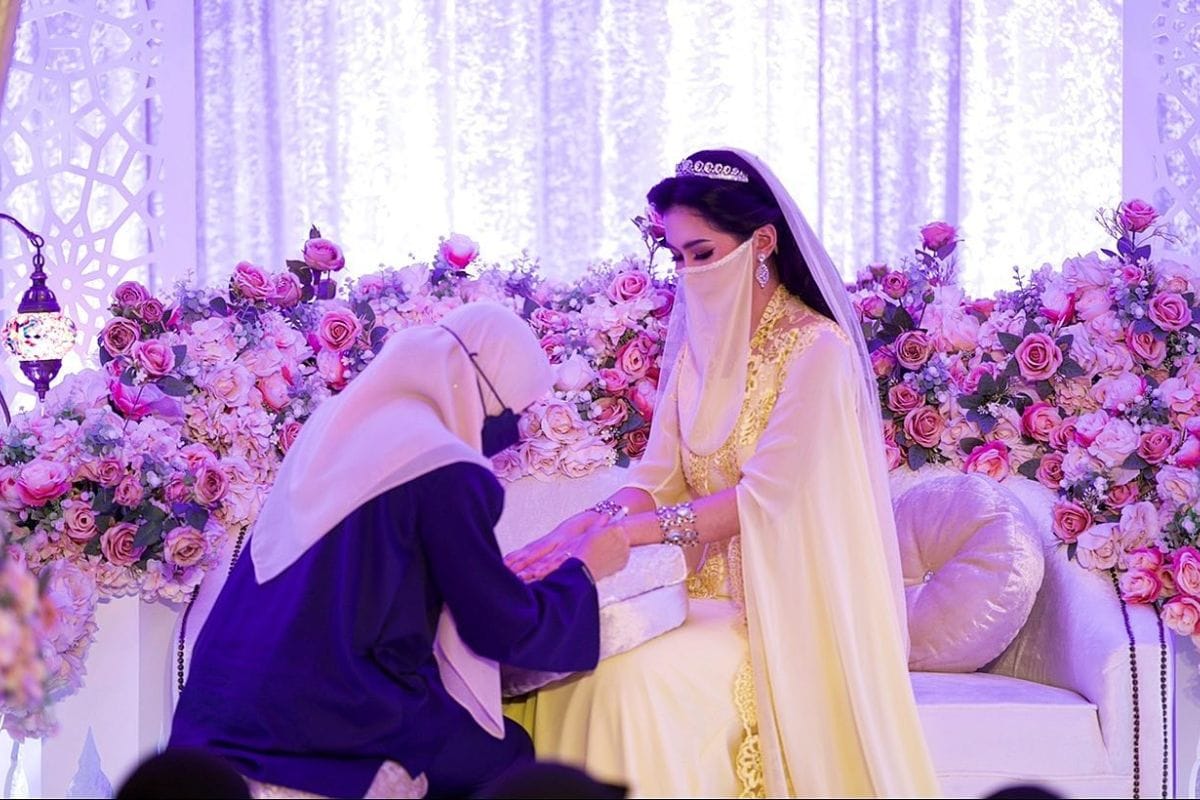
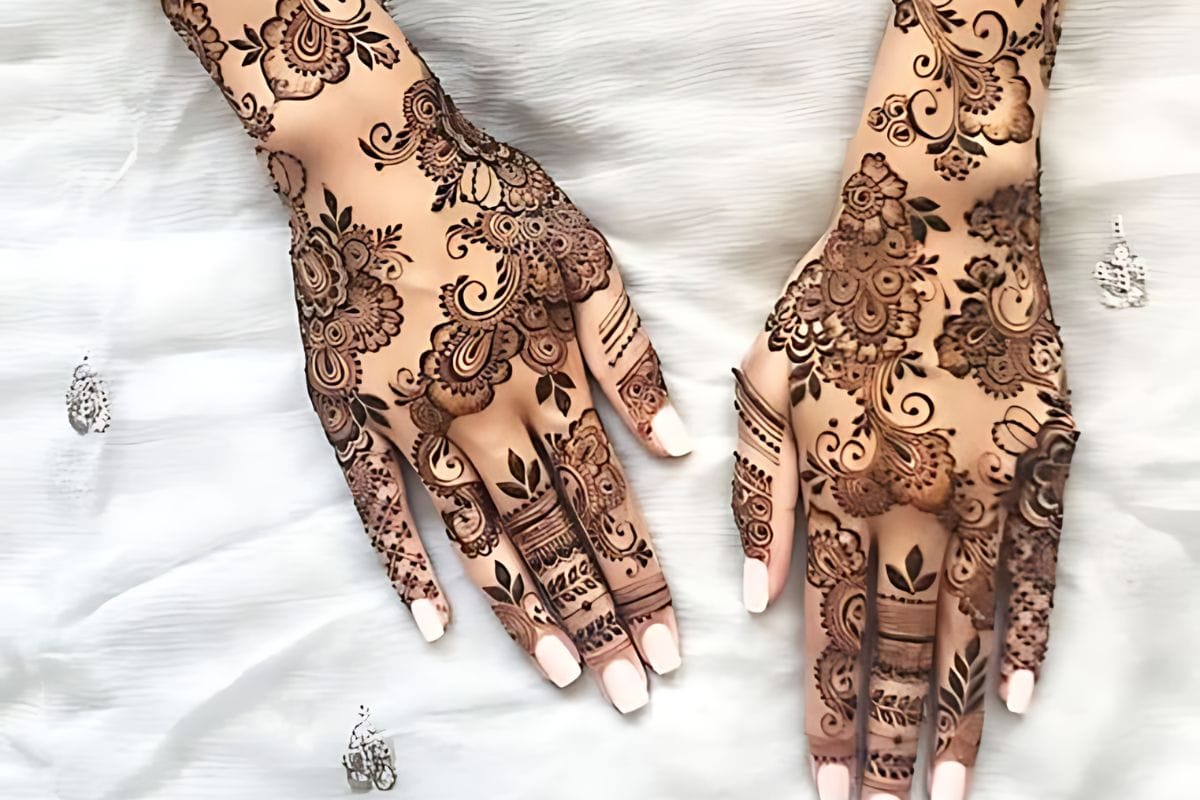
Now, it's time for one of the most beloved traditions in an Emirati wedding: the Henna Night. This bridal shower event is usually done 2-3 days before the wedding. It's a night when all the bride's beloved friends come together and celebrate her upcoming wedding.
For years this tradition was passed down, originally having the elder women of the family pain the bride's henna as a sign of 'passing down the family blessings and wisdom'. Today, however, various henna artists can be booked for the event. And, if you look closely enough, you can even spot the groom's initial hidden among the intricate designs!
The Wedding
And finally, the big day is here! Here's a deeper look at what goes on during this special day.
Milcha
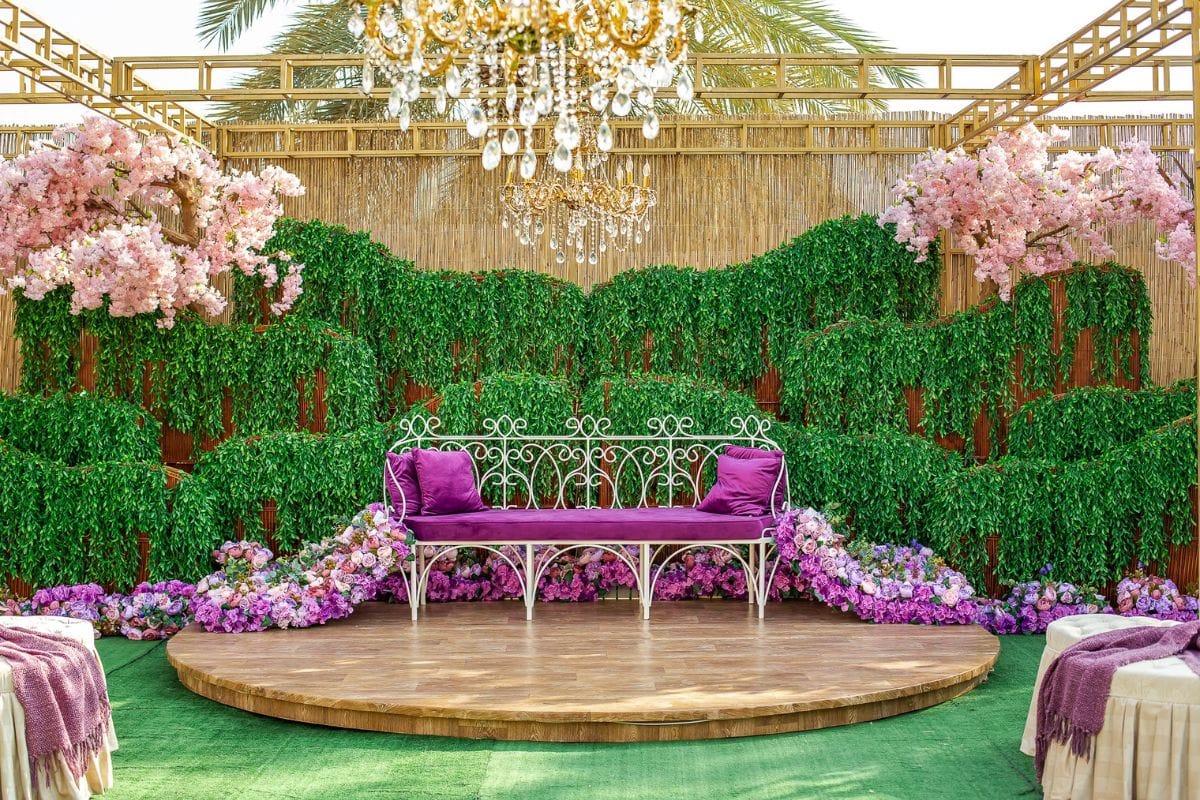
The Milcha is an unforgettable and essential part of Emirati wedding customs. ; think of it as a prelude to a marriage. This is a special night when the marriage contract is signed and the couple is legally married. This event is overseen by a Sheikh, the bride and groom's fathers, and at least two other witnesses.
Traditionally, the Milcha is a separate event, but some couples prefer to merge it with the official wedding. Regardless of the timing, the Milcha holds immense cultural significance in the Emirati world.
Nikkah
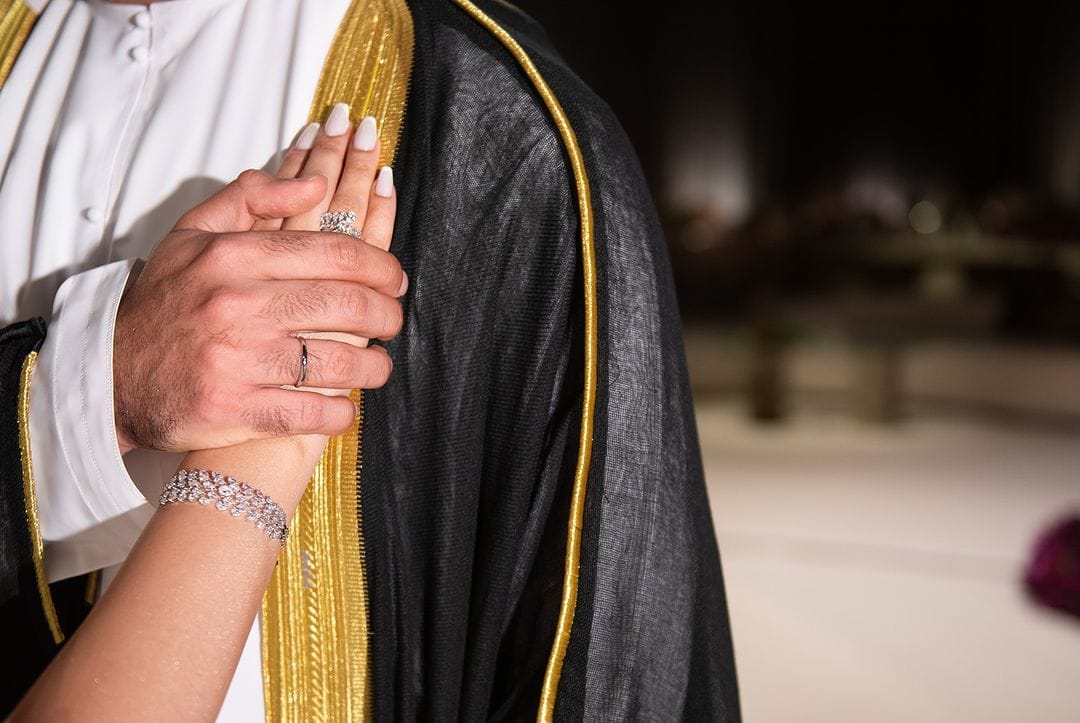
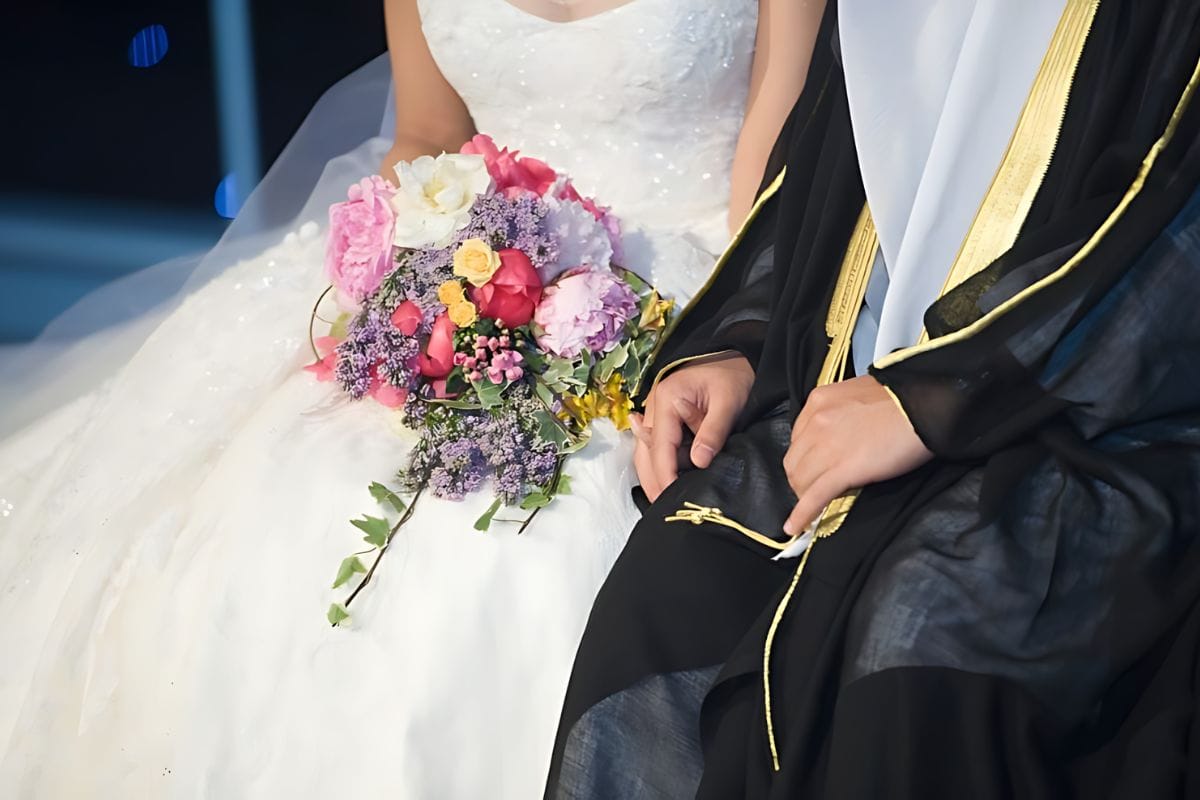
The Nikkah is the official wedding day, and in the UAE it's a little similar to the Milcha. While the Milcha was just the signing of the contract, the Nikkah is the full celebration, complete with a feast and fancy attire.
The Nikkah party in Emirati culture is usually segregated by gender. Men and women celebrate separately, with the women typically gathering in one area of the venue while the men gather in another. This separation allows for a more traditional and culturally appropriate celebration, as well as more comfort for both the couple and the guests.
Attire
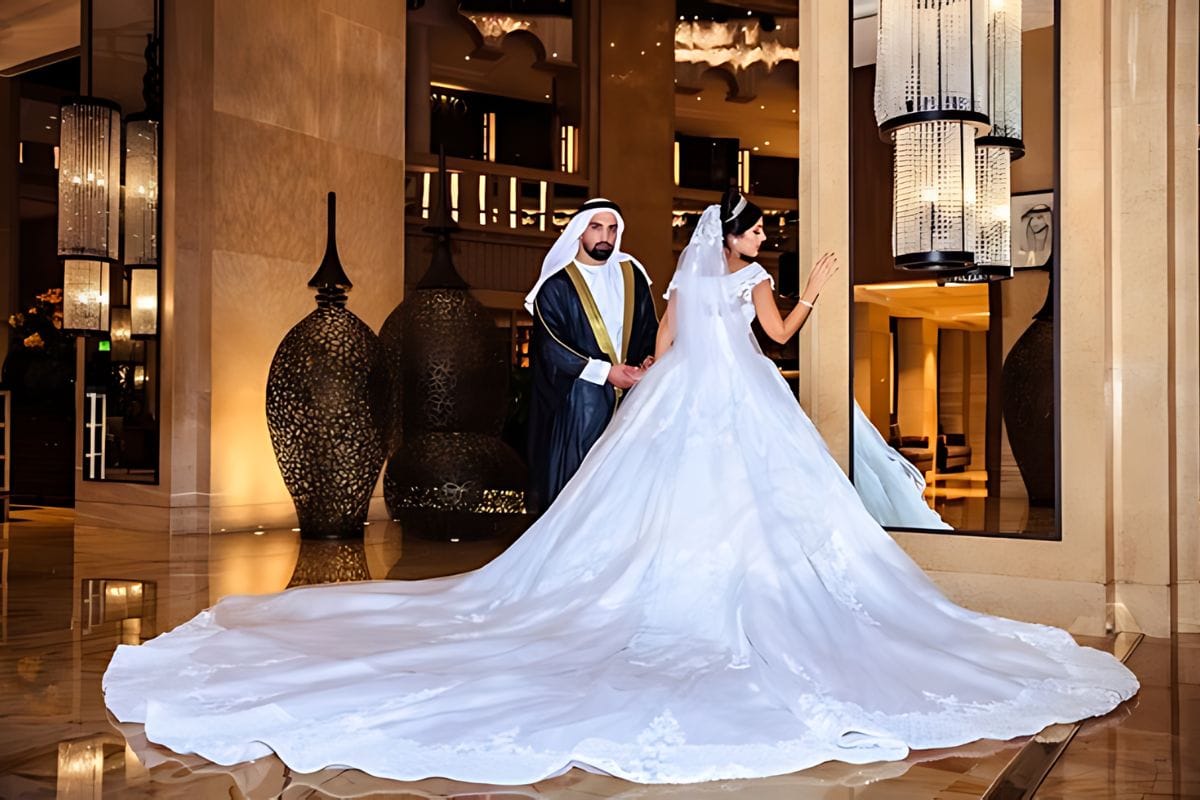
Emirati weddings take extravagance to the next level in their attire. On such a special day, both the bride and groom make sure they look their absolute best. With luxurious fabrics and intricate designs, Emirati wedding attire often includes traditional elements such as intricate embroidery and designs.
Of course, the bride must have the most beautiful wedding dress of all. Sometimes, the wedding dress may even cost more than the ceremony itself! The groom also spares no expense for his wedding outfit, often opting for a tailor-made outfit. Traditionally, a groom's wedding outfit is a white kandura covered in a black cloak with gold trimmings known as a bisht. They also usually wear a traditional white ghutra with a black iqal to complete the look.
Zaffa
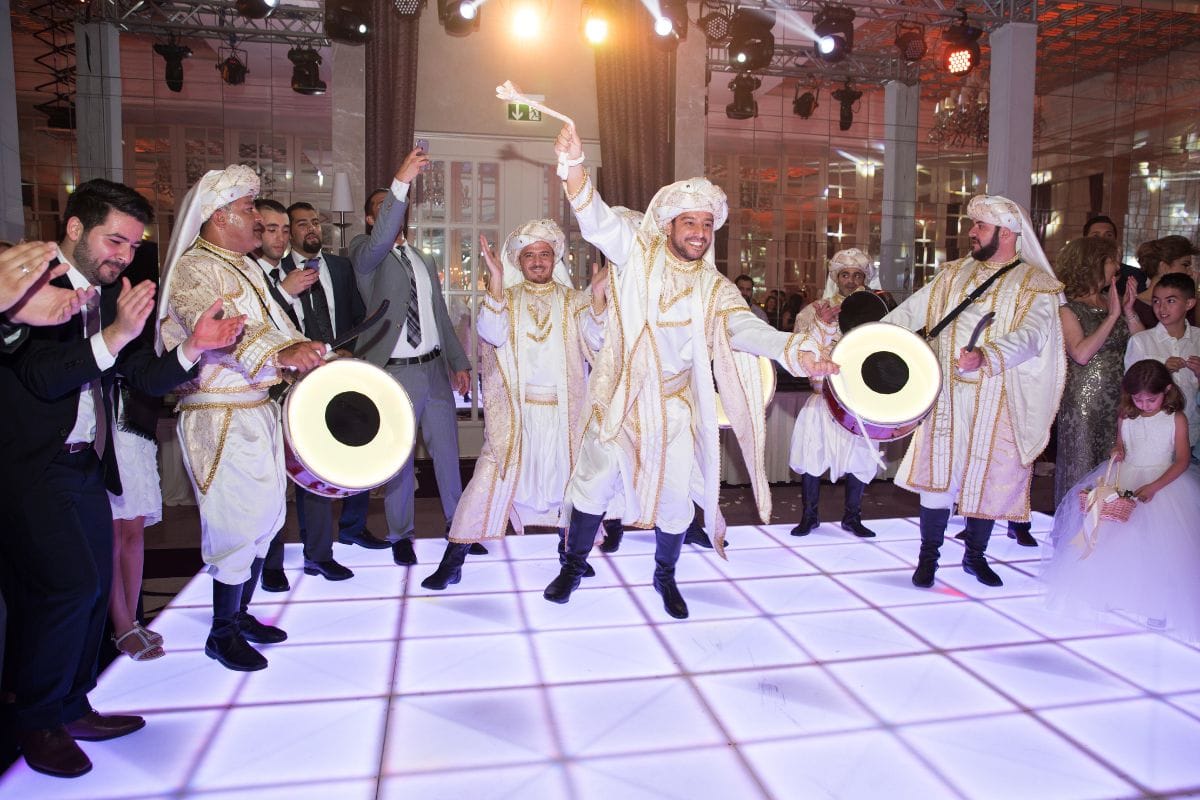
A Zaffa is among the most popular celebration dances in the Arab world. Although it originated in Egypt, it has been adopted by countless cultures across the MENA region. At an Emirati wedding, you shouldn't be surprised if you hear the upbeat drums and the lively horns.
This dance has been a part of celebrations for decades, whether it be at weddings or graduations. The Zaffa is usually performed during the entrance of the newly married couple, hyping up the crowd and setting the vibrant mood for the rest of the event. It's the perfect tradition to honor the bride and groom as they begin their new life together, symbolizing their joy, love, and unity.
Feast
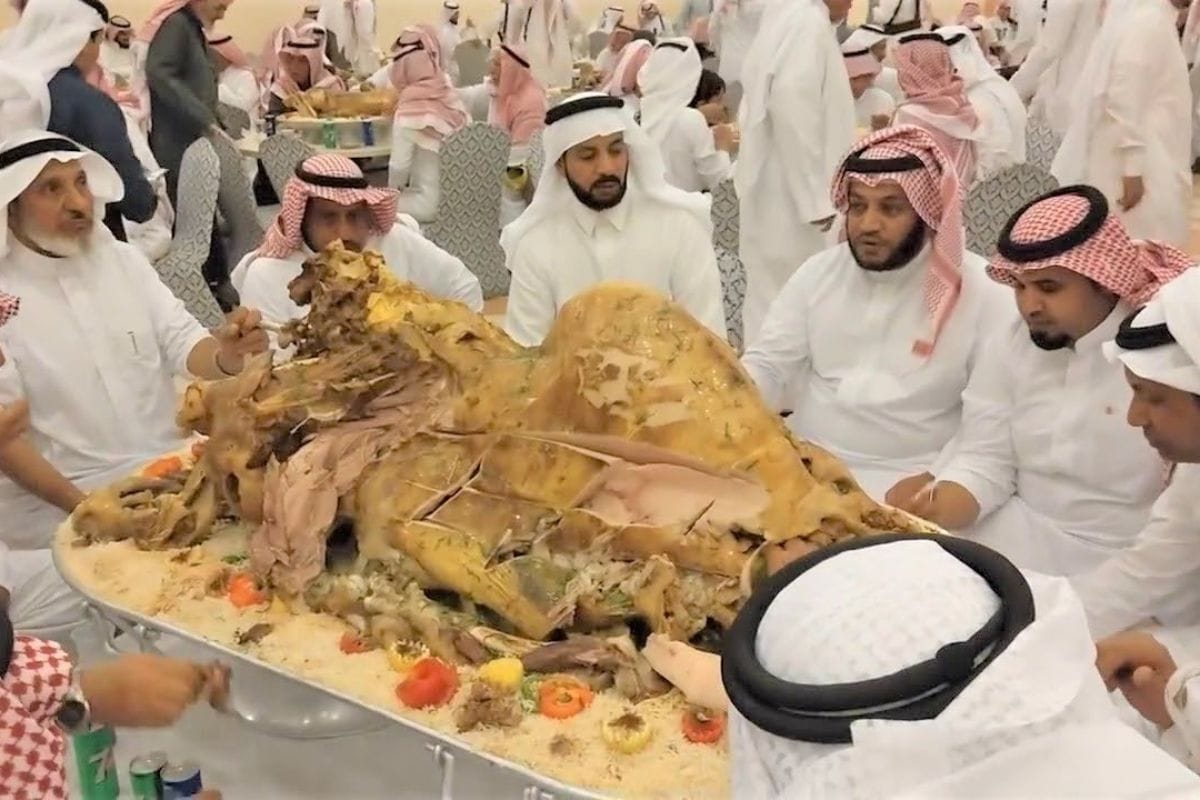
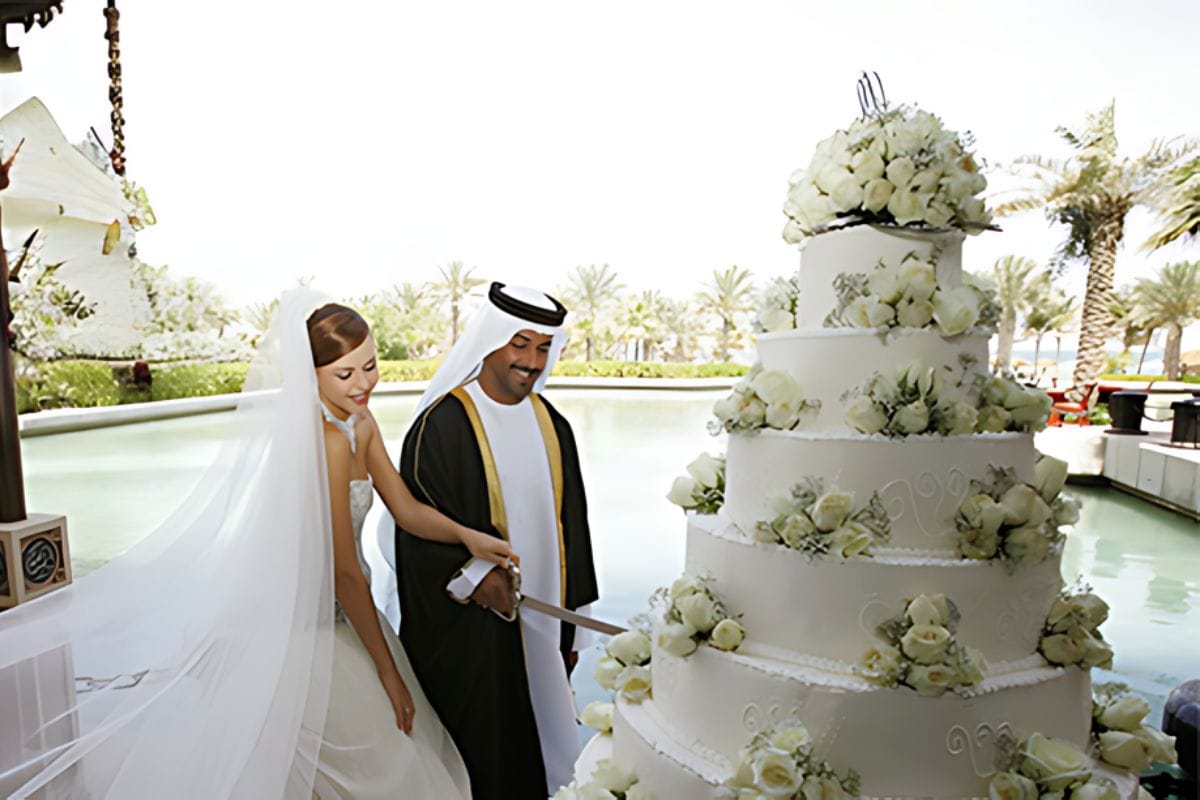
Of course, it can't be a wedding without a delicious feast. you can trust that you'll be treated to a lavish spread of traditional dishes. From aromatic rice dishes to five-tiered cakes, every bite is sure to leave you satisfied and craving more.
One of the most popular dishes in the UAE is camel meat, which is often served as a delicacy at special events, and a wedding is definitely no exception. The rich meat is often slow-cooked and seasoned to perfection, giving it a unique taste.
Just like with their celebrations and attire, Emiratis go above and beyond for their wedding cakes; nothing below three tiers! These towering cakes are designed with the most intricate designs and flavors. Not only are they delicious, but they symbolize a brand new chapter of sweetness in the newlyweds' lives.
Also Read:
